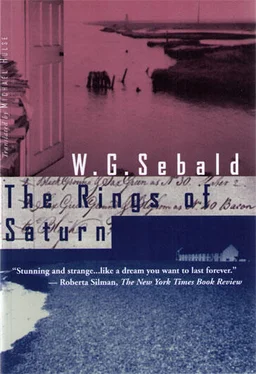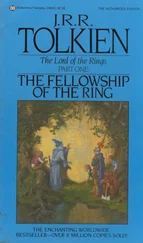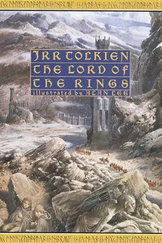
3. Fishermen on the beach — The natural history of the herring — George Wyndham Le Strange — A great herd of swine — The reduplication of man — Orbis Tertius
Three or four miles south of Lowestoft the coastline curves gently into the land. From the footpath that runs along the grassy dunes and low cliffs one can see, at any time of the day or night and at any time of the year, as I have often found, all manner of tent-like shelters made of poles and cordage, sailcloth and oilskin, along the pebble beach. They are strung out in a long line on the margin of the sea, at regular intervals. It is as if the last stragglers of some nomadic people had settled there,

at the outermost limit of earth, in expectation of the miracle longed for since time immemorial, the miracle which would justify all their erstwhile privations and wanderings. In reality, however, these men camping out under the heavens have not traversed faraway lands and deserts to reach this strand. Rather, they are from the immediate neighbourhood, and have long been in the habit of fishing there and gazing out to the sea as it changes before their eyes. Curious to tell, their number almost always remains more or less the same. If one strikes camp, another soon takes his place; so that over the years, or so it appears, this company of fishermen dozing by day and waking by night never changes, and indeed may go back further than memory can reach. They say it is rare for any of the fishermen to establish contact with his neighbour, for, although they all look eastward and see both the dusk and the dawn coming up over the horizon, and although they are all moved, I imagine, by the same unfathomable feelings, each of them is nonetheless quite alone and dependent on no one but on himself and on the few items of equipment he has with him, such as a penknife, a thermos flask, or the little transistor radio that gives forth a scarcely audible, scratchy sound, as if the pebbles being dragged back by the waves were walking to each other. I do not believe that these men sit by the sea all day and all night so as not to miss the time when the whiting pass, the flounder rise or the cod come in to the shallower waters, as they claim. They just want to be in a place where they have the world behind them, and before them nothing but emptiness. The fact is that today it is almost impossible to catch anything fishing from the beach. The boats in which the fishermen once put out from the shore have vanished, now that fishing no longer affords a living, and the fishermen themselves are dying out. No one is interested in their legacy. Here and there one comes across abandoned boats that are falling apart, and the cables with which they were once hauled ashore are rusting in the salt air. Out on the high seas the fishing continues, at least for the present, though even there the catches are growing smaller, quite apart from the fact that the fish that are landed are often useless for anything but fish-meal. Every year the rivers bear thousands of tons of mercury, cadmium and lead, and mountains of fertilizer and pesticides, out into the North Sea. A substantial proportion of the heavy metals and other toxic substances sink into the waters of the Dogger Bank, where a third of the fish are now born with strange deformities and excrescences. Time and again, off the coast, rafts of poisonous algae are sighted covering many square miles and reaching thirty feet into the deep, in which the creatures of the sea die in shoals. In some of the rarer varieties of plaice, crucian or bream, the females, in a bizarre mutation, are increasingly developing male sexual organs and the ritual patterns of courtship are now no more than a dance of death, the exact opposite of the notion of the wondrous increase and perpetuation of life with which we grew up. It was not without reason that the herring was always a popular didactic model in primary school, the principal emblem, as it were, of the indestructibility of Nature. I well recall one of those flickering short films that teachers could borrow from local film and slide libraries in the Fifties, which showed a trawler from Wilhelmshaven in almost total darkness riding waves that towered to the top of the screen. By night, it appeared, the nets were cast, and by night they were hauled in again. Everything happened as if in a black void, relieved only by the gleam of the white underbellies of the fish, piled high on the deck, and of the salt they were mixed with. In my memory of that school film I see men in their shining black oilskins working heroically as the angry sea crashes over them time upon time — herring fishing regarded as a supreme example of mankind's struggle with the power of Nature. Towards the end, as the boat is approaching its home port, the rays of the evening sun break through the clouds, spreading their glow over the now becalmed waters. One of the seamen, washed and combed, plays on a mouth organ. The captain, with the air of a man mindful of his responsibilities, stands at the helm, looking ahead into the distance. At last the catch is unloaded and we see the work in the halls where women's hands gut the herring, sort them according to size, and pack them in barrels. Then (so says the booklet accompanying the 1936 film), the railway goods wagons take in this restless wanderer of the seas and transport it to those places where its fate on this earth will at last be fulfilled. I have read elsewhere, in a volume on the natural history of the North Sea

published in Vienna in 1857, that untold millions of herrings rise from the lightless depths in the spring and summer months, to spawn in coastal waters and shallows, where they lie one on top of another in layers. And a statement ending with an exclamation mark informs us that each female herring lays seventy thousand eggs, which, according to Buffon's calculation, would shortly produce a volume of fish twenty times the size of the earth, if they were all to develop unhindered. Indeed, the records note years in which the entire herring fisheries threatened to go under, beneath a truly catastrophic glut of herring. It is even said that vast shoals of herring were brought in towards the beaches by the wind and the tides and cast ashore, covering miles of the coast to a depth of two feet and more. The local people were able to salvage only a small portion of these herring harvests in baskets and crates; the remainder rotted within days, affording the terrible sight of Nature suffocating on its own surfeit. On the other hand, there were repeated occasions when the herring avoided their usual grounds and whole stretches of coastline were impoverished as a result. The routes the herring take through the sea have not been ascertained to this day. It has been supposed that variations in the level of light and the prevailing winds influence the course of their wanderings, or geomagnetic fields, or the shifting marine isotherms, but none of these speculations has proved verifiable. For this reason, those who go in pursuit of herring have always relied on their traditional knowledge, which draws upon legend, and is based on their own observation of facts such as the tendency of the fish, swimming in even, wedge-shaped formations, to reflect a pulsating glow skyward when the sunlight falls at a particular angle. One dependable sign that herring are present is said to be myriads of scales floating on the surface of the water, shimmering like tiny silver tiles by day and sometimes at dusk resembling ashes or snow. Once the herring shoal had been sighted, it was fished during the following night, and this was done, according to the natural history of the North Sea already quoted, using nets two hundred feet long that could take almost a quarter of a million fish. These nets were made of coarse Persian silk and dyed black, since experience had shown that a lighter colour scared the herring off. The nets do not enclose the catch, but rather present a kind of wall in the water which the fish swim up against in desperation until at length their gills catch in the mesh; they are then throttled during the near-eight-hour process of hauling up and winding in the nets. Because of this, by far the majority of the herrings are lifeless by the time they are hoisted out of the water. Earlier natural historians such as M. de Lacépède therefore tended to suppose that herring die the instant they are removed from water, from some form of infarct or other cause. Since all authorities were soon agreed in ascribing this particular characteristic to the herring, much attention was long paid to eye-witness accounts of herrings remaining alive out of the water. Thus it is recorded that a Canadian missionary by the name of Pierre Sagard watched a batch of herring thrashing about for some time on the deck of a fishing boat off the Newfoundland coast, and that one Herr Neucrantz of Stralsund meticulously chronicled the final throes of a herring that had been taken from the water one hour and seven minutes before the time of its death. Again, the inspector of the Rouen fish market, a certain Noel de Marinière, one day saw to his astonishment that a pair of herring that had already been out of the water between two and three hours were still moving, a circumstance that prompted him to investigate more closely the fishes' capacity to survive, which he did by cutting off their fins and mutilating them in other ways. This process, inspired by our thirst for knowledge, might be described as the most extreme of the sufferings undergone by a species always threatened by disaster. What is not eaten at the spawn stage by haddock and sucker fish ends up inside a conger eel, dogfish, cod or one of the many others that prey on herring, including, not least, ourselves. As early as 1670, more than eight hundred thousand Dutch and Friesians, a not inconsiderable part of the entire population, were employed in herring fishing. A hundred years later, the number of herring caught annually is estimated to have been sixty billion. Given these quantities, the natural historians sought consolation in the idea that humanity was responsible for only a fraction of the endless destruction wrought in the cycle of life, and moreover in the assumption that the peculiar physiology of the fish left them free of the fear and pains that rack the bodies and souls of higher animals in their death throes. But the truth is that we do not know what the herring feels. All we know is that its internal structure is extremely intricate and consists of more than two hundred different bones and cartilages.
Читать дальше















